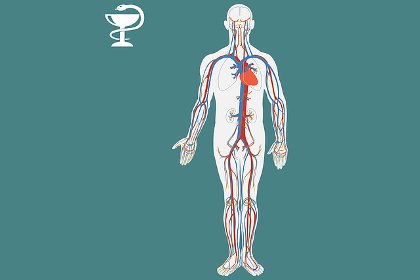
How to Eat Your Way to a Healthier Heart
As all other muscles in your body, your cardiac muscles need a constant and consistent supply of certain nutrients and their cofactors to operate properly.
September 12, 2016 | Source: Mercola.com | by Dr. Joseph Mercola
Your cardiac muscles are rather specialized. While similar to your skeletal muscles in that they’re striated, their functionality more closely resembles your smooth muscles, as the continuous contraction of your heart is involuntary.
Every minute, your heart pumps about 5 liters (1.3 gallons) of blood throughout your body, and for optimal health, it’s imperative your heart continues its duty without interruption for the duration of your life.
As all other muscles in your body, your cardiac muscles need a constant and consistent supply of certain nutrients and their cofactors to operate properly.1
Interestingly, part of the energy your body requires can be obtained from sunlight, but you must expose your skin directly to it. The ultraviolet (UV) radiation increases nitric oxide (NO) release, which can direct more than half your blood flow to your skin.
Once your blood is exposed to the sun it can absorb UV and infrared radiation, which can help to structure the water in your cells and energize your mitochondria, and your heart has the largest concentration of mitochondria.
Heart Problems Are Often Related to Nutrient Deficiencies
Chronic nutrient deficiencies can lead to a number of heart problems, such as cardiomyopathy (a condition characterized by inflammation, loss of elasticity and enlargement of your heart), heart valve diseases, arrhythmia (irregular heartbeat) and heart failure.
Examples of nutrients that are important for heart health include (but are not limited to) B vitamins (including folate or B9 and B12), carnitine, taurine, coenzyme Q-10 (CoQ10), magnesium, vitamin K2, vitamin D and animal-based omega-3.
All of these also play important roles in keeping your mitochondria working properly. Antioxidant polyphenols are also important for combatting inflammation and damage caused by free radicals.
That said, nutrients rarely work in isolation; rather, they work in synergy with other nutrients, which means supplementing with one without taking care of other deficiencies may not produce beneficial results.
For example, vitamins D, K2, magnesium and calcium work as a synergistic team, and if one is missing, the others will not perform well.
Your best bet is to eat a varied diet of whole foods, rich in fresh fruits, berries and vegetables. For example, recent research suggests a Mediterranean-style diet — rich in fiber and polyphenols — may be more helpful than statin drugs for heart health.
Mediterranean Diet Outperforms Statins for Heart Health
As reported by CNN:2
“The observational study was presented at the European Society of Cardiology conference.3 It showed that the people who have had a history of cardiovascular disease and stuck closest to the diet had a 37 percent lower risk of death compared with those who didn't stick with it.
A Mediterranean diet is one that is heavy on vegetables and legumes, fish, fruit, nuts and whole grains … Carnivores can keep poultry and lean cuts of meat on their Mediterranean menu. Red meat, processed food and sugar are off of it.”
CNN cites statin research showing these cholesterol-lowering drugs reduce your risk for heart problems by about 24 percent, so the Mediterranean diet outperforms these drugs by a significant margin. Other studies have also linked the Mediterranean diet to a lower risk of heart attack and stroke,4 and increased longevity.
